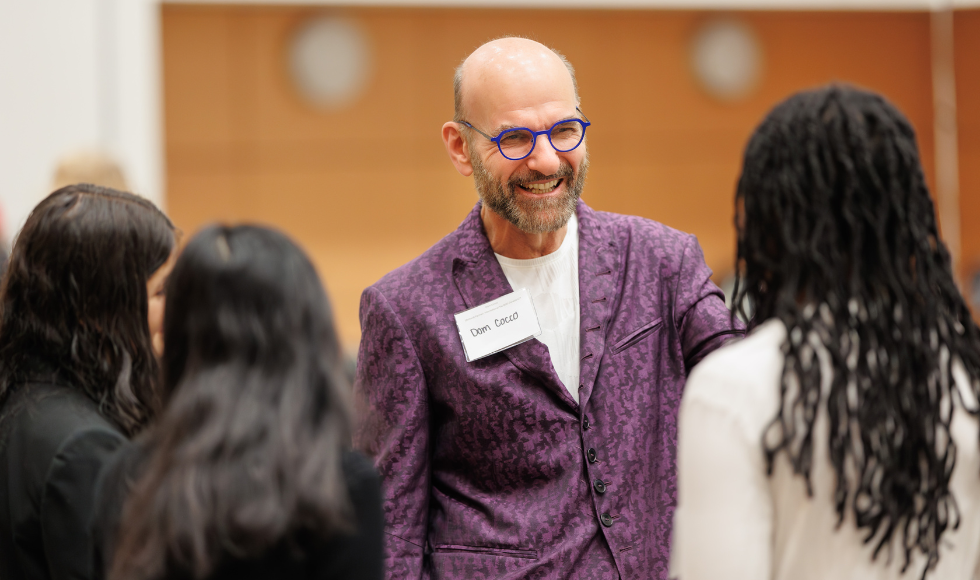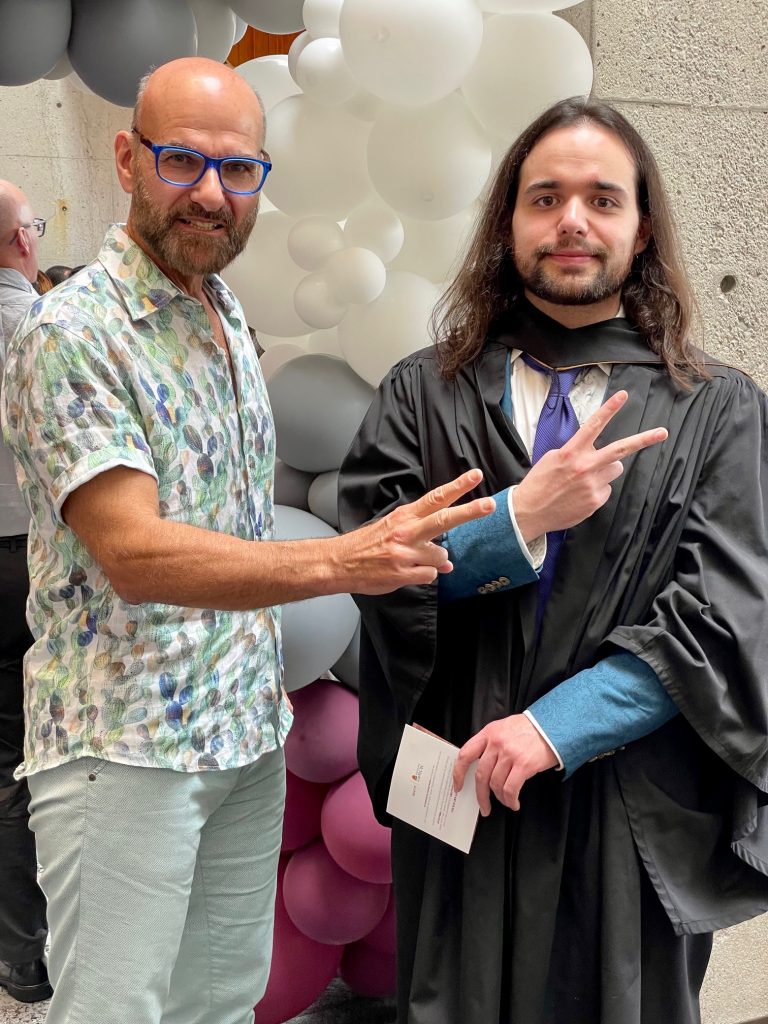Why McMaster donors give: Breaking down barriers for students with disabilities

Nicholas Cocco’s positive experiences with Student Accessibility Services inspired his father, Dom, seen here, to create a bursary to support students who require assistance with disability-related costs.
For most students, the transition from high school to university can be challenging enough without barriers.
But for recent McMaster graduate Nicholas Cocco ’22 who has autism, ADHD and OCD, the transition, at times, seemed insurmountable.
Nicholas’ postsecondary path began after high school when he made the decision to leave his home in Hamilton to attend Wilfrid Laurier University in Waterloo.
Without the support he was accustomed to, though, he soon found he was struggling with scheduling, communication, focus and social skills—all arguably necessary tools to succeed in postsecondary education.
“My son is very high functioning and has a high IQ, but he struggles with life in general. Laurier did what they could to assist Nick, but after two years, the stress was beginning to have a negative impact,” said his father, Domenico “Dom” Cocco, a retired partner at BDO Canada LLP and proud 1983 McMaster graduate.
Over the years, Dom has remained engaged with McMaster by lending his voice and experience as an international tax specialist and by volunteering his mentorship at McMaster’s DeGroote School of Business and business incubator, The Forge.
His son’s passion for science — specifically physics — meant Nicholas often attended lectures as a guest at McMaster’s Origins Institute, where he began to forge a relationship with Ralph Pudritz, the Institute’s former director, theoretical astrophysicist and professor at McMaster.
“Nick was the kind of student who would wait for question period to end after an Origins Institute lecture, then walk to the front and engage in 60-minute discussions with the PhD students on the topic they’d just presented, including working through some of the complex formulae used to explain the universe,” said Dom.
“So when Ralph suggested Nick apply to McMaster’s physics program, and we were looking for an opportunity to bring him closer to home anyway, it just made sense.”

When Nicholas applied to McMaster’s Faculty of Science and was accepted, Dom wasted no time getting in touch with McMaster’s Student Accessibility Services (SAS).
“SAS provides compassionate, individualized service to more than 4,000 students with disabilities at McMaster each year,” said Mei-Ju Shih, director of SAS.
“Our team of professional’s work across disciplines to develop accommodation plans and provide learning strategies, transcription services, assistive technology, test administration and exam invigilation,” she said.
This dedication to inclusivity and compassion was a catalyst for Nicholas’ postsecondary success. He eventually shifted his focus to Earth & Environmental Science and graduated with his Bachelor of Science in 2022.
He hopes to secure a position that will help make sustainability in business a norm.
“Despite being one of thousands of McMaster students with special needs, SAS went out of its way to really get to know Nick’s strengths and weaknesses and customize his experience,” said Dom.
“Their assistance allowed him to relax during exams and show his true knowledge in all subject areas.”
His son’s experience was also what inspired Dom, through his professional corporation, to establish the Cocco Family Bursary at McMaster University.
The bursary is granted to a student from any Faculty who demonstrates financial need and requires assistance with disability-related costs. It helps fund crucial supports, such as sign interpreters, attendant care for studies, specialized transportation, notetaking services and tutoring for a range of disabilities including physical, mental health and neurodiverse disorders.
“Historically, there hasn’t been a lot of assistance for students with neurodevelopmental disorders once they finish high school other than through private care, which can be costly,” said Dom. “Giving back to McMaster in this way just felt right.”
Shih added: “Bursary support for students with disabilities like the Cocco Family Bursary isn’t just financial aid, it’s a beacon of hope and opportunity, and a testament to the transformative power of compassion and inclusion.”
Give to McMaster’s Student Accessibility Services
Why McMaster donors give: At McMaster University, every single gift, no matter the size, has the potential to make a difference in the lives of our students, the quality of our research and our ability to give back to our community and influence the future. We asked some of our donors and their families what motivates them to give. These are their stories.


